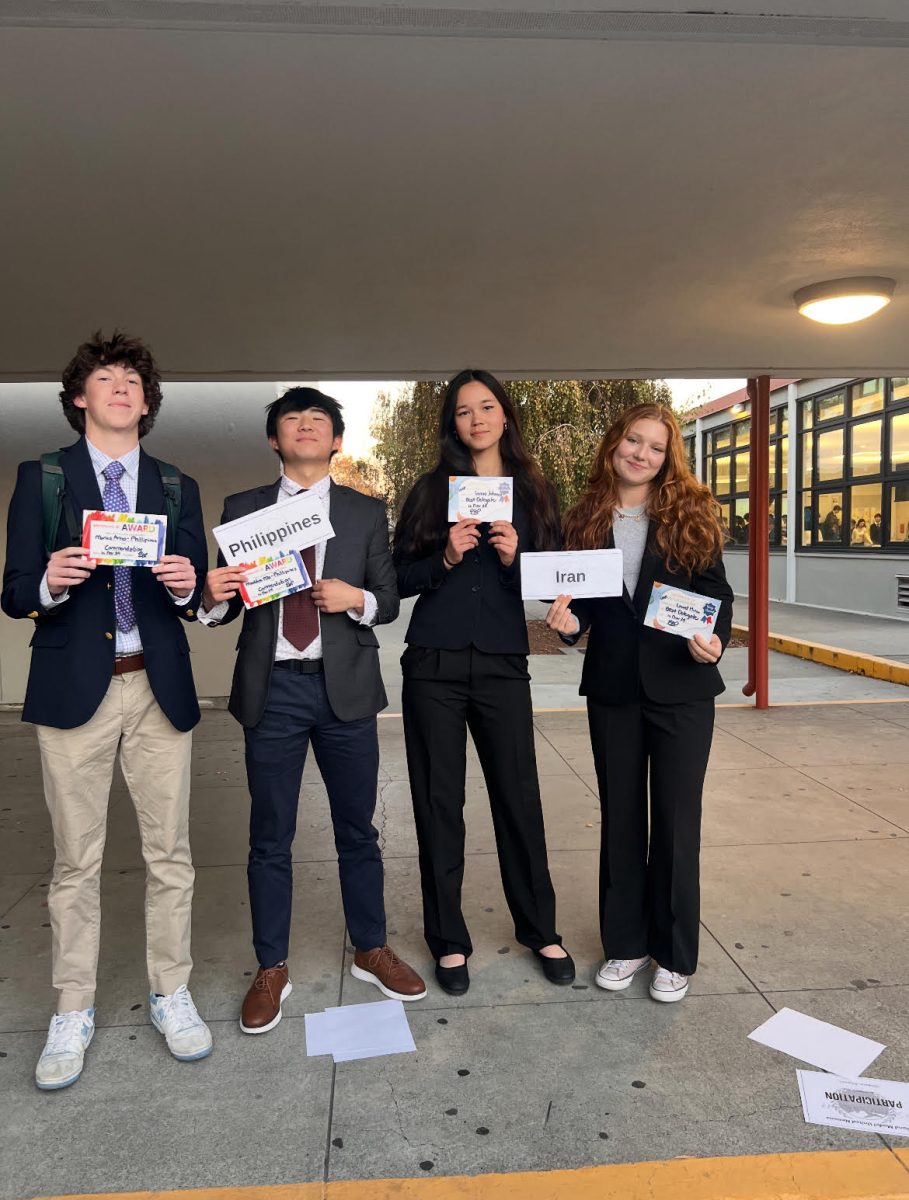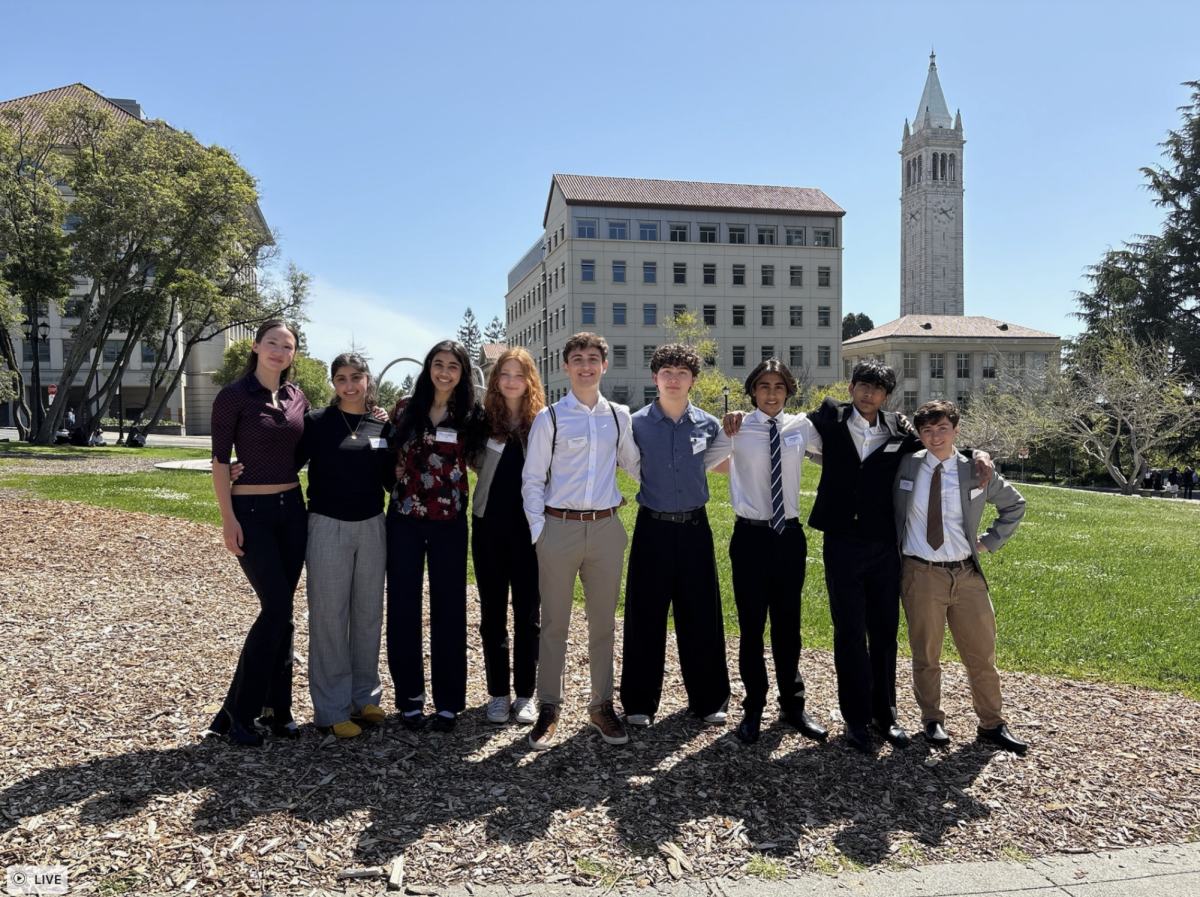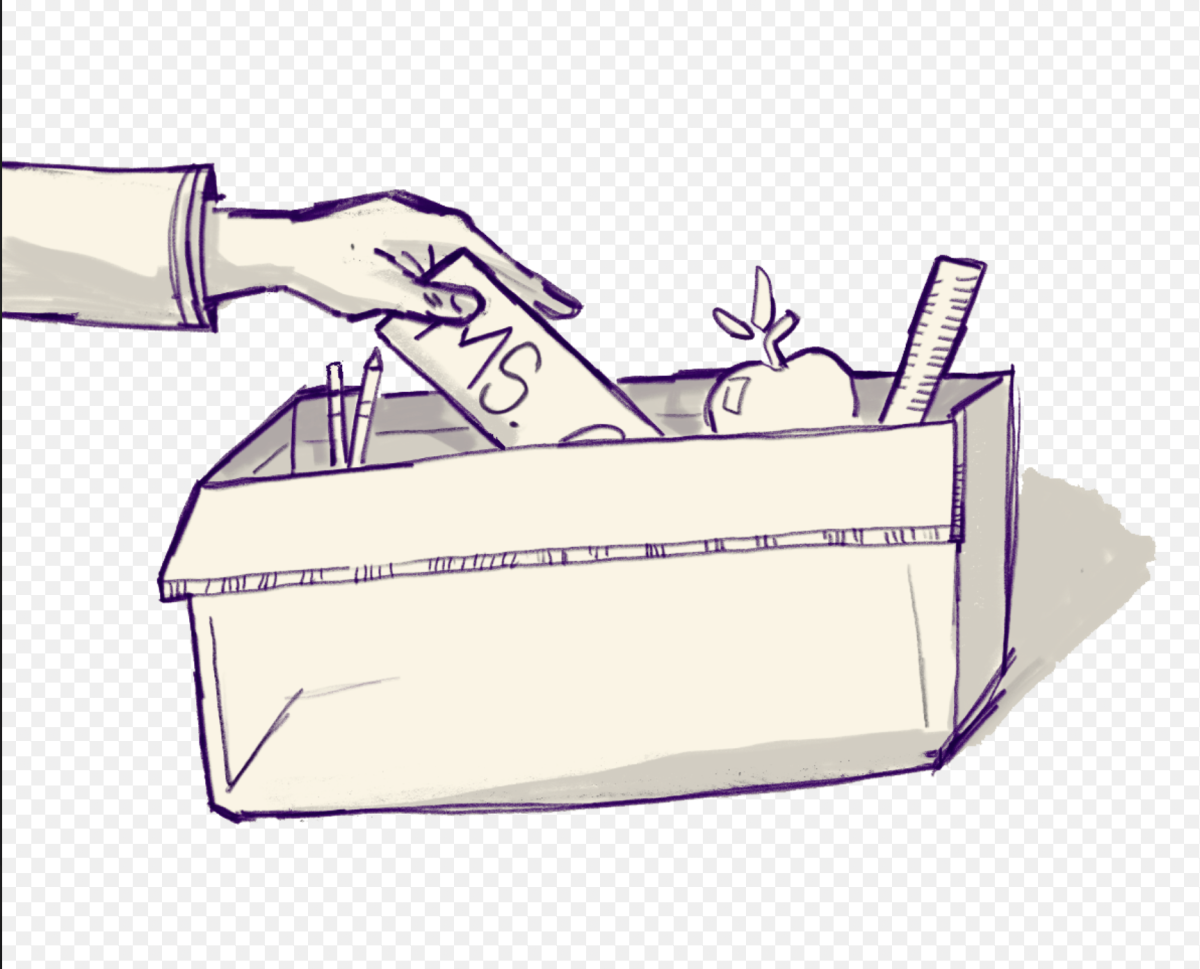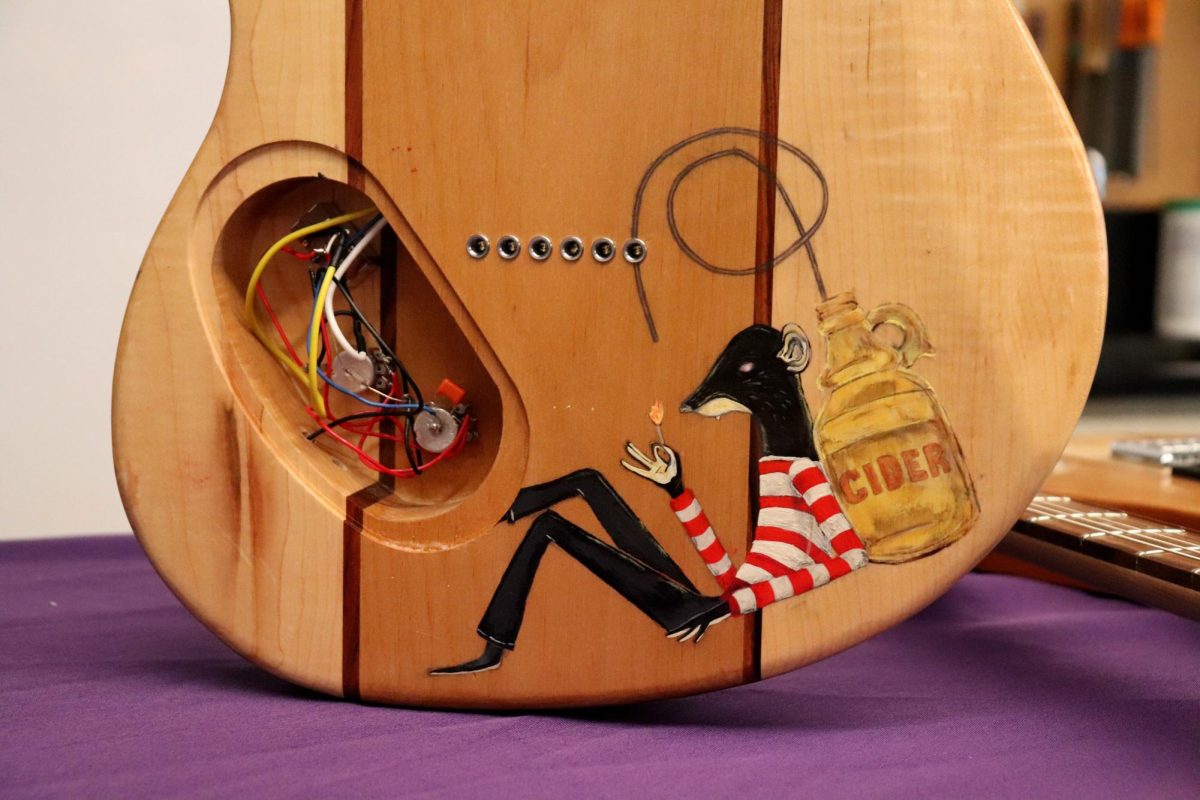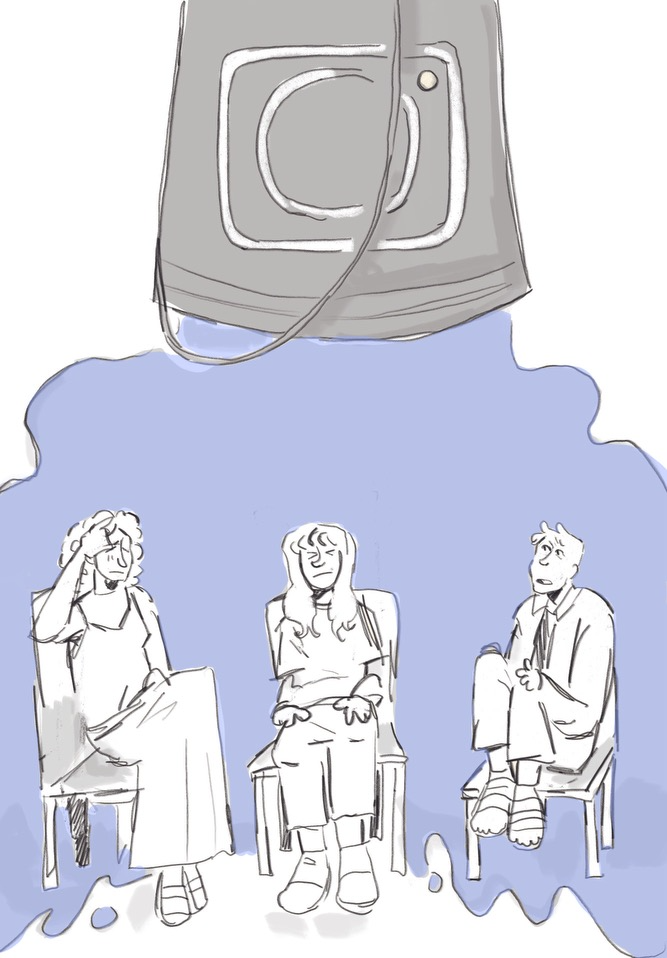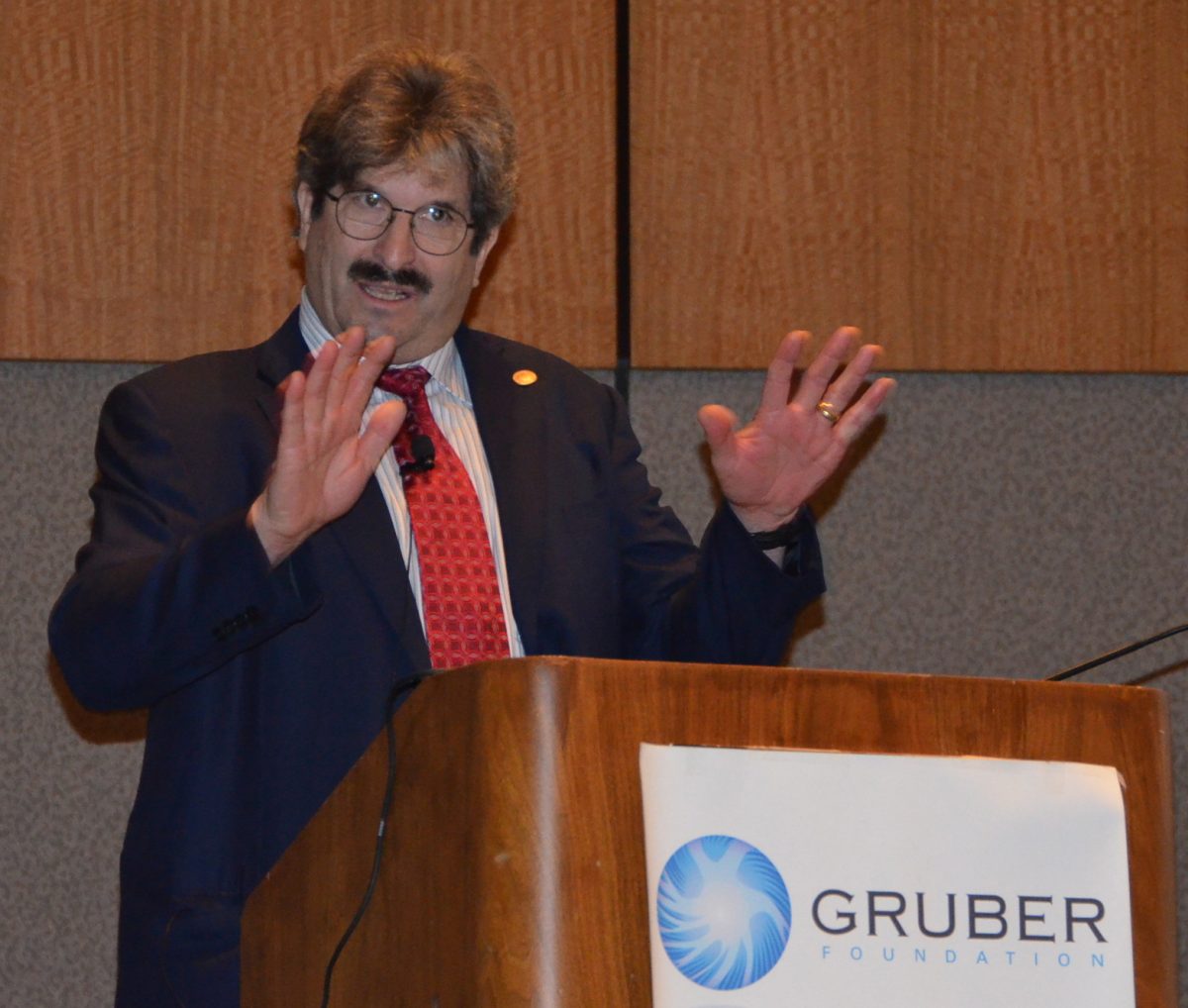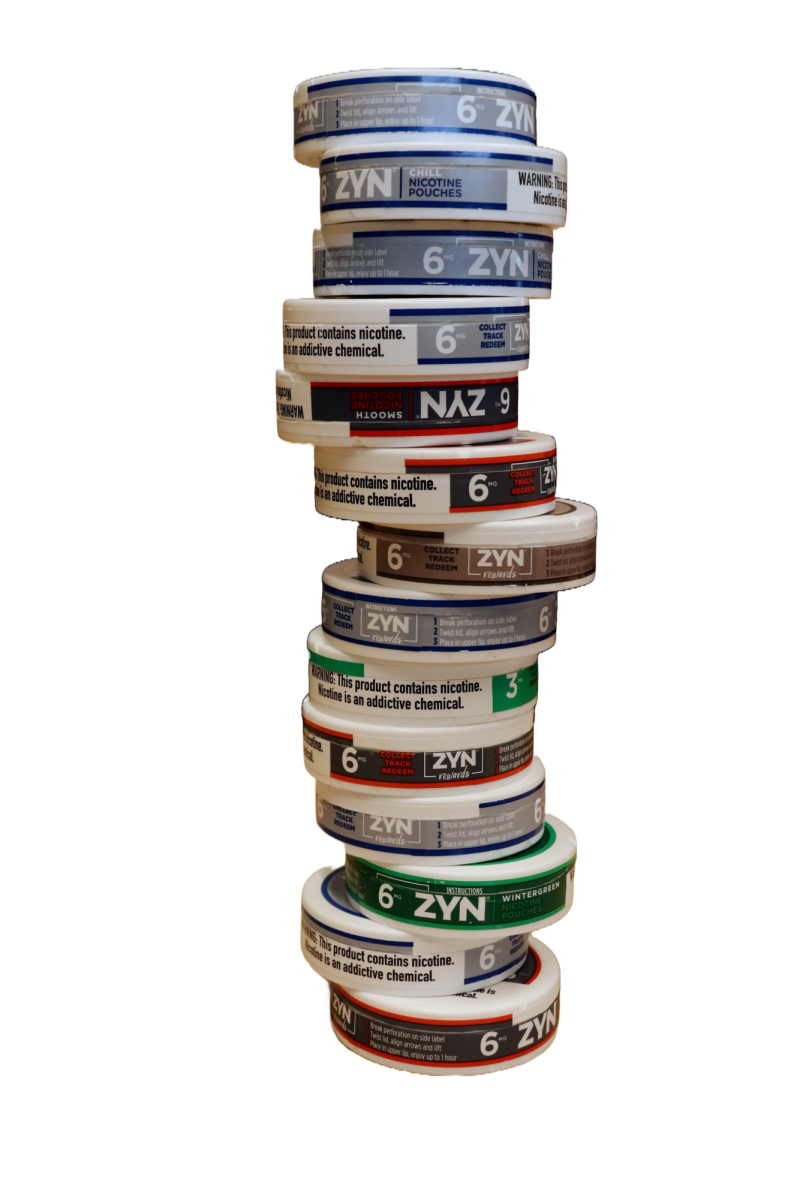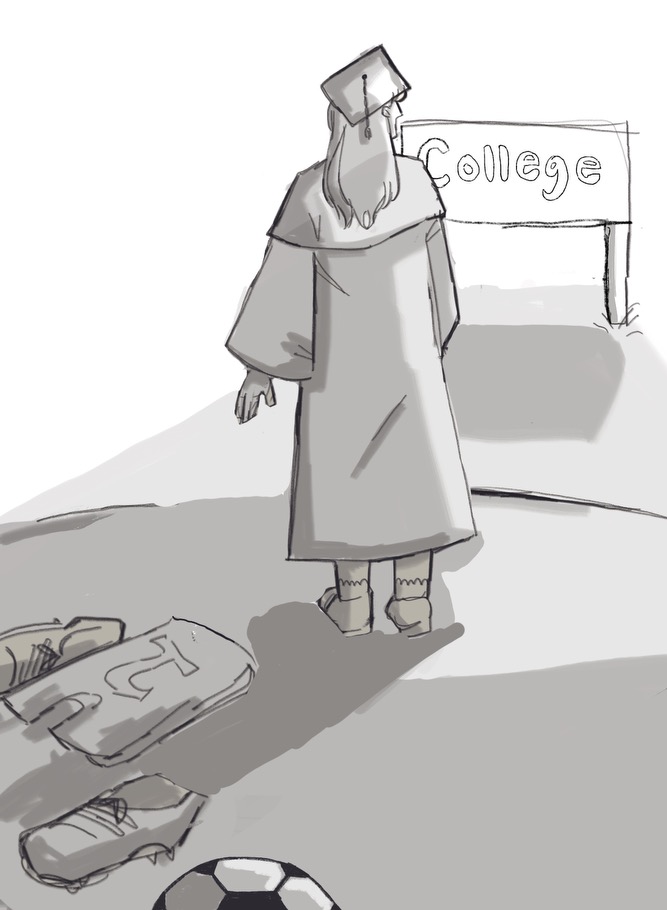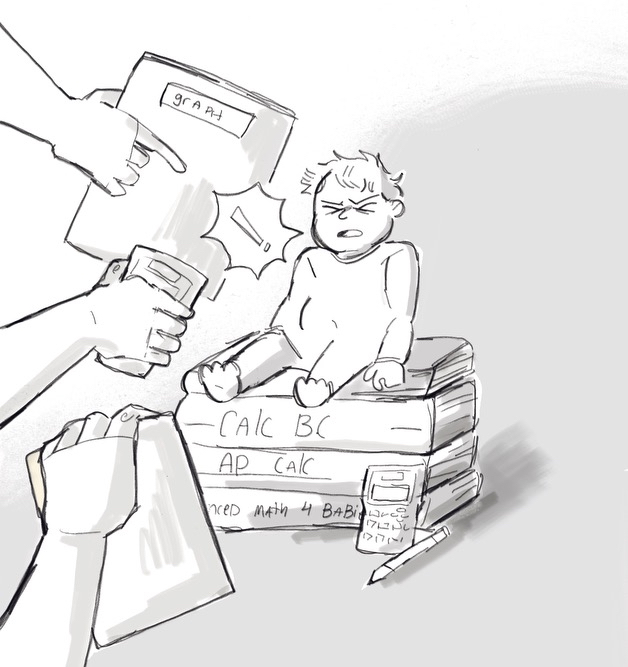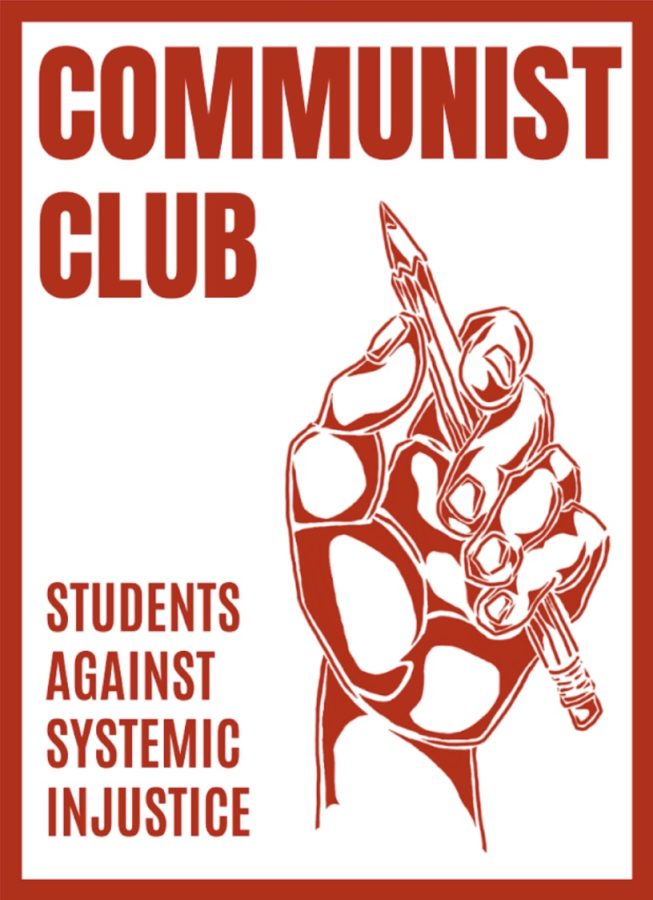A Conversation About Communism Club
Apr 1, 2023
Bulletin boards and classroom walls are littered with club flyers and event promotions, capturing the eyes of distracted students as they drift down PHS hallways. This semester, a new batch of red posters appeared on campus, bearing the familiar symbol of a hammer and sickle. These posters were made to promote PHS’s Communism Club.
Led by sophomore Ella Hughes and senior Sohrab Ford, the club consists of political debate, discussion, and education centered around anti-capitalism, with an intent to examine the status quo. The club is held weekly in Room 30, and aims to promote equality on campus and increase club unity.
Hughes said that the club also strives to combat the struggles of marginalized groups across campus.
“We know the school isn’t a safe place to be if you’re Jewish, a person of color, queer, [etc.] It’s safe to the degree that you’re not gonna get killed. We can do better than that. And we firmly believe that if we all band together we can do better,” Hughes said.
Junior Siddarth Bhatia, who occasionally attends club meetings, said he thinks the club is successful in encouraging conversation related to social justice.
“I think it’s unusual for young people to have an intelligent conversation around any issue really, especially on their own time,” Bhatia said. “And that’s why I think the communism club is valuable.”
While some students see the value in the conversation, other students and parents had concerns about the club.
Piedmont parent Karen Yan expressed concern over the club’s ideals in an email sent to Principal Goswami, Assistant Superintendent Cheryl Wozniak, and Piedmont Parent Network representatives.
Having grown up during the tail end of the rule of the Communist Party and the cultural revolution in China, Yan said that Marxism heavily affected her and her family.
“I had a most authentic, orthodox teaching of Marxism, socialism, communism,” Yan said. “I was very well versed in that.”
Yan said that teachers, peers, and family members had been persecuted and humiliated during her time under Mao Zedong in communist China.
“There’s no limit to marxism. There isn’t an equilibrium, from the theorists point of view.” Yan said.
Senior Heather Stoneman said she is aware there are people who do not support the club’s premise,
“It’s a controversial club, [and] there might be some people that don’t take it seriously. But I personally like it being here. It’s good to talk about communism in such a capitalistic society and what we can learn from it” Stoneman said.
After TPH interviewed Yan, Hughes, and Ford separately, and talked with other students, we decided to organize a sit down conversation together so that they could hear each other. During the guided conversation on April 3 in room 32, each participant got to share their own story and thoughts about communism. We have included the main ideas, in their words, for the rest of this story.
Ms. Yan, please tell us a little bit about your experience and how it affected your stance on communism and the club.
“I grew up in Shanghai, China. I spent my teenage years during the Orthodox Soviet style Communist rule. Basically, we grew up studying Marxist theories. We understood there was a famine. They would not admit mistakes, because it is part of the attributes of socialism that the party cannot be doubted.
But just in one province, six million people died. [This violence] is a unique attribute of socialism, because there is an ideology attached to it. There’s a righteousness attached to it. All over you’re looking at in China alone, from sixty million to a hundred million people died from socialism.” -Yan
Seb and Hughes, please tell us about your club and its goals. How do you explore communism?
“Our club focuses more on abstract study than on actually preaching an ideology. The idea of the club is to create a space where there is no judgment to discuss social, economic, and political issues. It was created for a demand for some sort of educational platform outside of our school’s history curriculum. Every single education has its biases. Every single thing that we do in history ends with ‘well, yes, ‘the modern United States is clearly the best form of government,’ which doesn’t acknowledge any of the intricacies of it. We don’t endorse violence or hate. The idea is to talk about the way society is now and how it has been historically. So no matter what we ended up calling it, our club is basically a social justice club. So it’s not about one theory and one ideology. It’s about educating all of them, so that people can analyze it themselves. I think our idea of socialism or communism is very far away from the implementations. We are just upset students who want to do something about it.” – Hughes.
Seb and Hughes, you have 5 minutes to respond to Ms. Yan’s previous statement.
“We don’t in any way condone fascist or Nazi governments. Our club has been approaching that kind of stuff, especially the Nazis. We’ve been discussing how socialism was in the name, but they limited the amount of actions that were actually socialist,” -Hughes.
“I’m half Iranian, I know the Islamic Regime isn’t how Islam is supposed to be practiced. But if I purely went off my family members who were hurt, shot, or killed, I could easily be very Islamophobic. There could be a whole range of things having to do with implementation versus ideology,” -Ford.
Ms. Yan, you have 5 minutes to respond to Seb and Hughes.
“In my initial email to the school I made it very clear that students have the freedom to try out any ideology. I think it’s completely your right to organize any club. I applaud you for actually taking on responsibility and feel a sense of ownership to what’s happening. But I do feel that communism, marxism, is an extremely deceptive ideology. It preys on impressionable minds. There are always grievances. People who joined socialism were mostly driven by discontent. Usually idealist, good-hearted people. Because they have sympathy, empathy for the down-trodden and want to make the world a better place. And the ‘abstract’ sounds very good, but once it starts implementing it, you already know it’s false. It is predicated on a lie. You may start from a very good point. You may have a very good heart. You may have discontent, very justified discontent. There’s a lot we can say about capitalist society, human democratic society. I have no problem with anybody exploring it.” – Yan
Starting with Seb and Hughes, how should the ideology of communism be discussed at high school?
“Our stance on this is that communism should be discussed in economics classes and history classes. I’m taking world history right now, and I think we mentioned communism once. What we believe is that there should be an equal level of education about things. This is the ideology [and] this is how it’s practiced, from both sides. People have this don’t touch attitude instead of thinking about ideology. There’s this idea that we can’t discuss politics or economics without it becoming dangerous. I think it’s time we de-stigmatize political discussions. People don’t know the history of either side and how both sides have been used to justify violence.” – Hughes
“If you discuss communism in your class, it’s not immediately propaganda. Capitalism is also an ideology. And we can say that it’s just as harmful to talk about how capitalism is the best. I think we can talk about communism without supporting fascist ideas. We don’t blame capitalism for slavery, for racism, starvation and homelessness. Not because of wars, not because the U.S attacked, not because of imperialism or totalitarianism. It’s always communism’s fault.” – Ford
“Equal coverage is what we really want. We want a conversation without assumption of the inherently good or the inherently bad. So many examples you bring up aren’t even taught at our schools. And I
think that’s half the problem.” – Hughes
Ms. Yan, how should the ideology of communism be discussed at high school?
“I agree with Hughes that it’s actually very unhealthy to attach a stigma to any kind of discussion of an unpopular ideology. I would say, that in the modern history at least, there has never been dissemination to humanity as big as socialism. Marxism theory is a theory of hate. And the more you explore it you may actually understand why it is the theory of hate. So I completely agree with you that we should not shut down conversations. We should not just briefly talk about it in text, in history classes, and not automatically label somebody. We should have dialogues, but at the same time, understand what Marxism is. It’s a useful theory to criticize the current society, so there’s a lot to be criticized about what we are seeing in the world in terms of injustice, inequity. There’s a lot to be improved, but Marxism is not the cure. Another thing on a very personal level. When you see a sea of Nazi symbols, a Jewish survivor would have trauma. When you see a sea of red flags, of communist symbols, you will have personal trauma. So as a survivor, it is a terror. It is very real.” – Yan
Yan, Hughes, and Ford thanked each other for their time and willingness to talk to each other at the end of the guided conversation.
TPH welcomes the opportunity to facilitate and publish more conversations with groups who want to learn about each other and share all sides of an issue.
